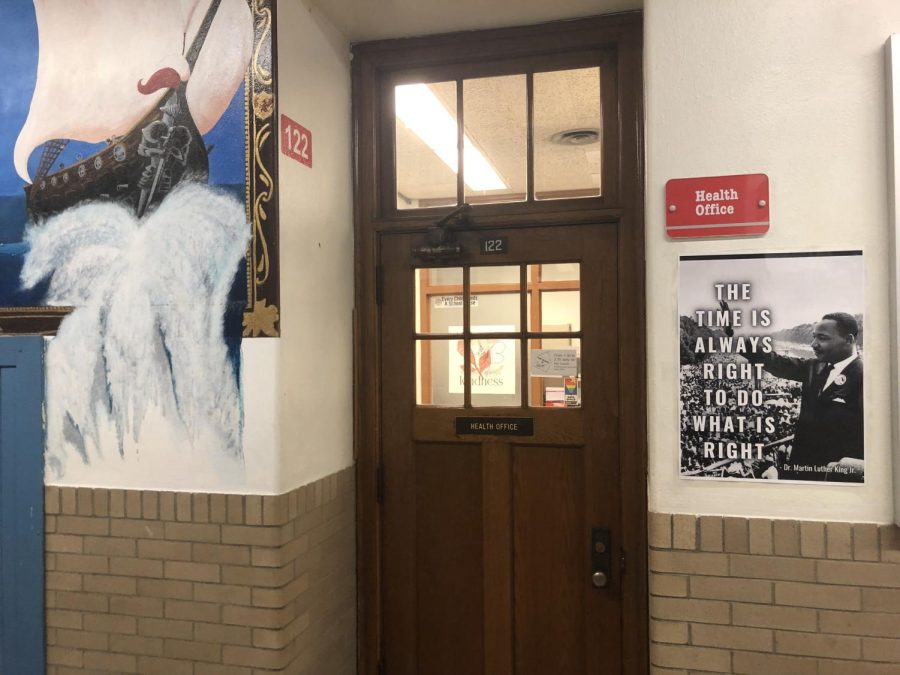In the upcoming elections, more is at stake than just the direction of the country. The United States is one of the largest countries in the world, and Americans have a drastic effect on the health of the planet. This election will determine what path the nation takes on environmental policy.
Senior Isabel Robertson, president of Shaker’s Green Club, thinks that drastic change is needed to save the planet from environmental devastation.
“I think it’s silly of people to deny that there is global warming,” Robertson said. She thinks that sustainable energy is the most important step toward environmental changes.
According to Robertson, pursuing renewable energy will not only protect the environment, but it will also provide the United States with new job opportunities. Because energy is central to American life, renewable energy is a tangible way for people to connect with environmental conservation.
“I remember clearly Mitt Romney saying ‘I love coal’ in the debate, and for that among other reasons, I think Obama has a better handle on the environment,” Robertson said. “Obama is just a lot more aware of the really bad things that are happening.”
A strong advocate for the environment, Robertson has campaigned for the school to install solar panels similar to the newly installed panels in the parking lot of First Unitarian Church. According to her calculations, with the tax credit and the energy savings, the panels would pay for themselves.
“Wind and solar are great opportunities for our country to implement huge employment options, and if more people were employed to work in these industries, they would be more interested in it, and the benefits from it,” Robertson said. “Energy is the most important thing in terms of the environment right now, and it is also easier—it’s more doable than people think.”
Because of his stances on environmental issues, Robertson said she would vote for President Obama.
A devout Christian, senior Ifelou Claytor embraces his sexuality and exudes confidence with a smile.
“I try my very hardest not to let my Christian values affect my politics,” said Claytor. “I think [gay marriage] should be legal nationally, and then leave it up to the churches” to decide if they would conduct them.
In a presidential campaign in which the candidates have staked opposing views on this issue, people such as Claytor have a clear choice—if they are one-issue voters. “It [gay marriage] should be a right, just like everyone else has, and that’s why we should legalize it nationally, and not leave it up to that states,” he said. For Obama, the position is clear: “President Obama has expressed his support for the Respect for Marriage Act,” which would repeal the Defense of Marriage Act, according to the White House website.
Claytor is well-informed about who has his best interests at heart. “He [Obama] has openly affirmed the LGBT community, he supports gay marriage, he has repealed Don’t Ask Don’t Tell,” Claytor said. Romney favors amending the Constitution with a Federal Marriage Amendment that would define marriage as between one man and one woman, according to Romney’s campaign website. “Politically speaking, I believe people deserve certain rights,” said Claytor, “even if I was a Christian to the point of opposing gay marriage for that reason. Politically, that’s a human right. They deserve equal rights, just like everyone else.”
A vote for Obama is Claytor’s choice. Although Christian, Claytor feels strongly in favor of churches casting aside their political aspirations to maintain DOMA.
He said, “If they’re not getting married in your church, then it’s not your problem.”
The issues that are creating some of the most heated rebukes or strong endorsements have resurfaced from what thought to be a long-settled debate. Women’s reproductive rights have once again taken center stage this presidential election. Not since the 1973 Roe v. Wade Supreme Court decision legalizing abortion has control of women’s bodies been a central campaign issue.
“Every woman should have the right to birth control and an abortion,” said junior Mia Wang. Those sentiments resound strongly in the Democratic stronghold and in Obama’s platform. “I think that birth control and healthcare is a right, not just a privilege,” Wang said. If Obama is re-elected and his Obamacare Act is effectuated, this right will become law.
Although Romney recently told journalists he knew of no abortion legislation that would concern him as president, he has previously said he would end funding for Planned Parenthood and seek to overturn Roe v. Wade, leaving abortion laws under state jurisdiction. “Abortions will happen even if they are outlawed, but whether they happen in a hospital or in an alleyway makes a big difference,” Wang said. Romney’s activism against these issues embody his pro-life values and are mirrored across the country in other campaigns.
In the wake of this controversy, women are very strong advocates of one or the other. Obama’s liberal social views contradicts those of Romney, which gives the voter no in-between. But for some, that’s a bonus.
“Women should have the option, even in abortion,” said Wang. “We’re not forcing you to have an abortion, but you should have the choice to do whatever you want. The government shouldn’t mandate what you can and can’t do.”
Women have often noted that the decision-makers on these life-changing issues are often male. Wang referenced Todd Akin, the Republican Senate candidate who used the term “legitimate rape” in September. “I feel like people who don’t understand women’s bodies should not legislate them.”
A version of this article appeared in print on 31 October 2012, on pages 6 and 7 of The Shakerite.





